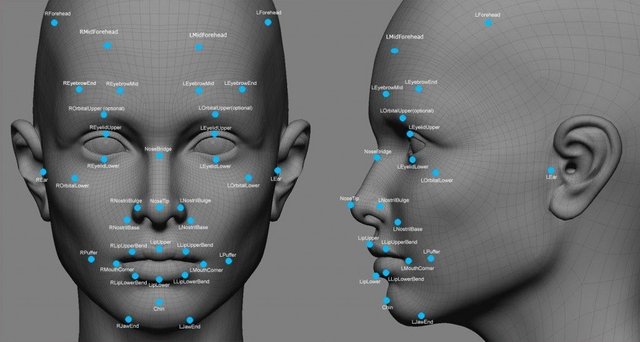Police Use of Facial Recognition Technology on Trial in Florida Court

Florida’s First District Court of Appeals will take on a case involving law enforcement use of facial recognition technology to catch a drug dealer. Specifically, the court will determine whether police are allowed to use the facial recognition software to catch suspects without notifying them of the technology. Police One reports:
"The court battle, regarded by researchers as the first of its kind in the country to consider how the surveillance tool can be used in a criminal case, is being waged over a statewide biometric database of faces run out of the Pinellas County Sheriff’s Office — one that extends to anyone with a Florida driver’s license despite their criminal histories, or lack thereof.
Undercover detectives from the Jacksonville Sheriff’s Office accessed the system through an intermediary in September 2015 to generate a lead after hitting a dead end in their search for the perpetrator of a $50 crack buy. More than two years later, state prosecutors with the Florida Attorney General’s office are making novel arguments to defend the agency’s use of the controversial technology."
The case revolves around Willie Allen Lynch’s appeal of his May 2016 conviction for the sale of cocaine. The specific arguments of the case deal with whether the state was obligated to provide photographs of other potential matches discovered by the software. Lynch’s attorneys are arguing that the photos of other potential suspect should have been provided to the court before his original trial. State prosecutors did not disclose how officers located Lynch and failed to mention the software in the arrest report.
Lt. Chris Brown of the Jacksonville Sheriff’s Office told Police One that the department does not have a policy for how to deal with data gathered by facial recognition software. The lack of a concrete policy regarding the use of the emerging field of biometrics is emblematic of a larger problem – how is the world going to grapple with the coming expansion of facial recognition technology and what does it mean for privacy?
These are questions that deserve answers. And fast. Especially, in light of recent news regarding the U.S. government’s plan to implement the use of facial recognition technology. Activist Post recently reportedthat the Texas-Mexico border is being used as the testing grounds for the technology. The results of a new pilot program will be used to help roll out a national program along the entire southern and northern borders. The Austin-American Statesman noted that the Department of Energy hired researchers at Tennessee’s Oak Ridge National Laboratory to help overcome the difficulties of using facial recognition technology on moving vehicles. The researchers developed a method for combating window tinting and sun glare which can make a vehicle’s windows impenetrable to cameras. The facial recognition technology being developed for the pilot program will be capable of identifying the driver, front passengers, and the passengers riding in the back.
The Customs and Border Protection agency currently operates facial recognition exit programs at almost a dozen international airports in the United States. Colleen Manaher, the CBP’s executive director of planning, program analysis and evaluation, told the Statesman that travelers have been accepting of the technology and noted that “we can thank the Apples and the Googles for that.”
The U.S. Immigration and Customs Enforcement is currently facing a lawsuit for failing to release records related to the agency’s use of devices to gather biometric data from immigrants. Mijente and the National Immigration Project of National Lawyers Guild are asking a federal court to force ICE and the Department of Homeland Security to release information related to the use of handheld devices used to gather biometric data from immigrants during raids.
The Florida case will be the first in a number of court decisions that emerge over the coming years as the public and law enforcement attempt to strike a balance between the desire to catch criminals and the need for privacy. On a final note, we should also consider the possibility that this technology is already getting out of hand. In this case it was used to locate a man who sold fifty dollars worth of cocaine. I personally do not enjoy cocaine so I would not be purchasing the product. However, Lynch was selling a product to individuals who voluntarily chose to purchase his product. As far as we know, he did not use force or violence to make them his customer. Again, this is not an endorsement of the use or selling of cocaine, but rather, an awareness the police are using these dangerous and invasive technologies to catch individuals who are not using force or physical aggression on people. These are small-time criminals at best. The authorities may claim they need the tools to stop terrorism or school shootings or the drug war, but at the end of the day it is the innocent people who will suffer.
This article may be freely reposted in part or in full with author attribution and source link.
Bitcoin: 16fDdrZvt9XUv7TyboSYtaHfcxMb22Yiew I am always available for interviews, Please contact [email protected] I greatly appreciate any support here or on my other social media:
Donate via:
Ethereum: 0x8d20b442de44C28467b3d66939ff3077F9CfCb24
DASH: XbPpwz1ZvtkTeik1y3wDgrHRJTEst564XH
| YouTube | Facebook |

A lot of ugly precedents have been set in the last couple years from this bullshit to a drone being used in Dallas to kill the alleged sniper. Not that I had any high hopes for Statism anyway. But here we go.
Let's just hope we can make a lot more voluntaryists and grow this thing exponentially before it's too late.
Taxation is theft.
Statism is slavery.
good to hear from you brother!
keep up the great work!! :)
Great article, thanks.
One question that sprang to mind while reading (and I think I have a fair idea but it's worth stating)
Why is the department of energy helping with facial recognition technology?
Thanks again and just FYI I found you through @corbettreport
They are tightening their grip or trying to but as the people wake their tactics will be become irrelevant. People are wakening to this shit the more they do to cut freedom the more people they wake to it! 💯🐒